A Brief Annotated List
Countless individuals have been leaders for racial justice throughout history. Some are well known. Some will never be known. The individuals here are neither the most important nor the best known; they are simply some representative figures that we have chosen in hopes that their stories may inspire others. Most of the individuals listed here were active in the United States, but the movement against racism is world-wide. We are eager to add to this list - more figures from countries other than the United States, more people of color, and more white people (especially those who have been active in seeking racial justice for Native Americans, Latinos, and Asians, as well as African Americans). We invite you to add to the list by sending us names of additional individuals with brief descriptions of some of what they have done. See "Contact Us".
*****
Sojourner Truth (1797 – 1883) 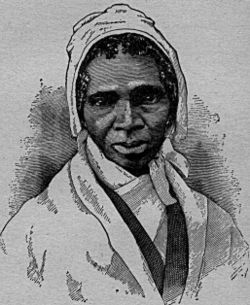
An African American woman, who was born into slavery in the state of
John Brown (1800-1859) 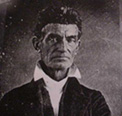
A white man who opposed slavery. He fought to help Kansas be a territory free of slavery. He tried to start a slave rebellion that would free the slaves by attacking the Federal Arsenal at Harpers Ferry to get weapons. He was captured, tried, and put to death. He was widely admired and influential in his day and helped move the abolitionist movement toward advocating immediate emancipation.
Prudence Crandall (1803-1889) 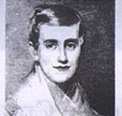
A white woman who ran a school for girls in Connecticut. In 1832 she admitted a local black girl. When the parents of her white students demanded the black girl be removed, she dismissed all the white students and re-opened the school with all black students.
Harriet Beecher Stowe (1811-1896) 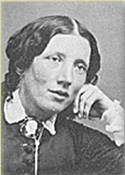
Prolific author who also sheltered and assisted escaping slaves as a part of the Underground Railroad. Taught ex-slaves to read. Wrote Uncle Tom’s Cabin, a novel which showed the nation the effects of slavery on African Americans and whites. It sold three million copies in the nineteenth century. Although the novel has been criticized since the later part of the twentieth century, at the time it was written it was tremendously influential in convincing many whites to turn against slavery and support its abolition. More copies of the book were sold in the United States than any other book besides the Bible. It was translated into many other languages and published in many countries, where it was widely read.
Frederick Douglass (1818 - 1895) 
Frederick Douglass was an African American who was born into slavery. He escaped and became one of the foremost leaders of the abolitionist movement, which fought to end slavery within the United States in the decades prior to the Civil War. He was a powerful speaker. The American Anti-Slavery Society sponsored a lecture tour in which he traveled widely and urged the abolition of slavery. He gained world fame when he published his autobiography in 1845. Later he published an anti-slvery newspaper called the North Star, lectured in Europe, and served as an advisor to President Lincoln. He pushed for the adoption of constitutional amendments that guaranteed voting rights and other civil liberties for blacks. His writings are still quoted today and he is widley admired for his contributions against racial injustice.
Lewis and Arthur Tappan (1800’s) 

These two white brothers were merchants who were born in Northampton, MA. Arthur was the founder and first president of the American Antislavery Society. Both brothers raised money for the defense of the African Americans aboard the Amistad. They also provided legal assistance for Prudence Crandall.
Thurgood Marshall (1908-1993) 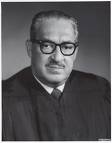
Thurgood Marshall was an African American who became a lawyer. As an attorney for the NAACP (National Association for the Advancement of Colored People) he argued cases in front of the United States Supreme Court. He won court cases that helped end legal racial segregation in housing, transportation, and voting. In 1954 he helped win the Brown vs. Board of Education case that ended legal segregation in schools. Later he was the first African American to become a justice on the Supreme Court.
Yuri Kochiyama (1921 - ) 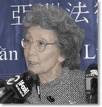
Yuri Kochiyama is a Japanese-American who has worked to build alliances between diverse cultural groups through her commitment to social justice. During World War II she and her family were among the many Japanese Americans sent to internment camps, just because they were of Japanese heritage. She became a grassroots civil rights activist who has involved herself in a wide range of issues from international political prisoner rights, nuclear disarmament, and redress for the internment. She saw many similarities between how the Japanese had been treated in the camps and how many minority groups, especially blacks, were treated in the U.S. at the time. In the 1960s she was a member of the Harlem Parents Committee organizing protests with African Americans for more street lights in her neighborhood. She became a friend of Malcolm X and joined his organization for Afro-Americn Unity. In 1977, Kochiyama joined the group of Puerto Ricans that took over the Statue of Liberty to draw attention to the struggle for Puerto Rican Independence.
Daniel K. Inouye (1924 - ) 
Daniel Inouye is a Japanese-American who was born in Hawaii. He received a Medal of Honor for his actions in World War II. When Hawaii became a state in 1959, Inouye was elected as the first Representative to the US Congress from Hawaii. He was later elected to the US Senate and has served for more than 43 years as a senator. He is the first Japanese-American elected to the US Congress. He intorduced legislation that led to the US Government apologizing and paying reparations for the internment of Japanese Americans during World War II.
Cesar Chavez (1927 - 1993) 
Dolores Huerta (1930 - ) 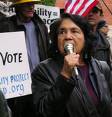
Toni Morrison (1931 - ) 
Toni Morrison was born in
Gloria Steinem (1934 - ) 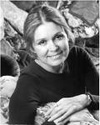
Best known as a leader of the twentieth century women's rights movement and the founder of Ms magazine, the first national women's magazine run by women. She was active in various civil rights and peace campaigns in the 1960s and 70s, including the Committee for the Legal Defense of Angela Davis (an African American activist who was unjustly jailed and later acquitted). She participated in the political campaigns of Shirley Chisholm (an African American woman who was elected to the U.S. House of Representatives for many years), and many others. She worked with Cesar Chavez on behalf of the United Farm Workers, a primarily Chicano/Latino union effort. She has been active in politics, supporting women and progressive leaders and working for social justice for decades.
Morris Dees (1936 - ) 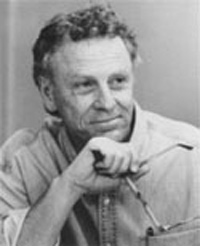
A white lawyer who leads the Southern Poverty Law Center and has used the law to pursue equal opportunities for minorities and the poor and to challenge white hate groups.
Russell Means (1939 - ) 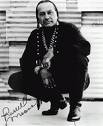
Heather Booth (1945 - ) 
As a young white college student Heather Booth went to Mississippi during "freedom summer" in 1964 to help register black people to vote. Later she founded a successful nonprofit school for grassroots organizers. Over the years she fought apartheid in South Africa and worked for economic justice in Palestine. She organized "Citizen Action" and played a key role in "Acorn", both effective activist organizations today. She was the field director for Carol Moseley-Braun when Moseley-Braun became the first African American woman ever elected to the U.S. Senate (1992). She was the director of the NAACP National Voter Fund, which helped increase the number of African Americans voting in national elections in 2000 by 2 million voters.
Patricia Williams (1951 - ) 
Patricia Williams is an African American professor of law and an author, who was awarded a "genius award" by the John D. and Catherine T. MacArthur Foundation in 2000. The Foundation said, "Her voice has created a new form of legal writing and scholarship that integrates personal narrative, critical and literary theory, traditional legal doctrine, and empirical and sociological research." She is on the faculty at the Columbia Law School and writes a regular column for "The Nation". She has written several books, including "The Alchemy of Race and Rights". She has also worked as a professor of women's studies and as a consumer advocate.
Winona LaDuke (1959 - ) 
Winona Laduke is a Native American activist/environmentalist/economist/actress/educator/author. She graduated from Harvard University with a degree in native economic development and became a high school principal on the White Earth Ojibwe reservation in Minnesota. In 1997 she won the Ms. Magazine Woman of the Year award. She was nominated as the Green Party candidate for Vice President of the United States in 1996 and 2000 (running with Ralph Nadar). She is the leader of the White Earth Land Recovery Project. She has been engaged in the struggle to help the Ojibwe recover lands promised to them in an 1867 treaty. She has helped them buy back thousands of acres of ancestral lands.
Anthony D. Romero (1965 - ) 
Anthony D. Romero was born in New York City to Puerto Rican parents. He was the first in his family to graduate from high school and then graduated from Stanford and Princeton Universities. He has spent many years as a lawyer and an advocate for social justice. In 2001 he became the Executive Director of the American Civil Liberties Union, the first Puerto Rican and the first gay man to hold that position. This organization works to protect the rights and liberties of all
Rigoberta Menchu (1959 - ) 
Rigoberta Menchu is a Mayan (Indigenous) woman born to a poor peasant family in Guatamala. She worked in the fields with her family as a young girl. She became involved in social reform through the Catholic Church and became active in the movement for women's rights. She has spent her life working for the rights of the Mayan people in Guatamala and for indigenous people throughout the Western Hemisphere . She has organized strikes and demonstrations, given speeches, written a powerful book, and participated in a documentary movie. She has been threatened with death because of her work, but did not let the threats stop her. In 1992 she was awarded the Nobel Peace Prize.
Tim Wise (1968 - ) 
A white Southerner and anti-racist activist who lectures and writes about combating racism and about white privilege. Wise wrote White Like Me: Reflections on Race from a Privileged Son (2005). An natural story teller, he speaks regularly on college campuses around the country about the harmful effects of racism on people of color and on white people, and about moving toward greater racial awareness and action.